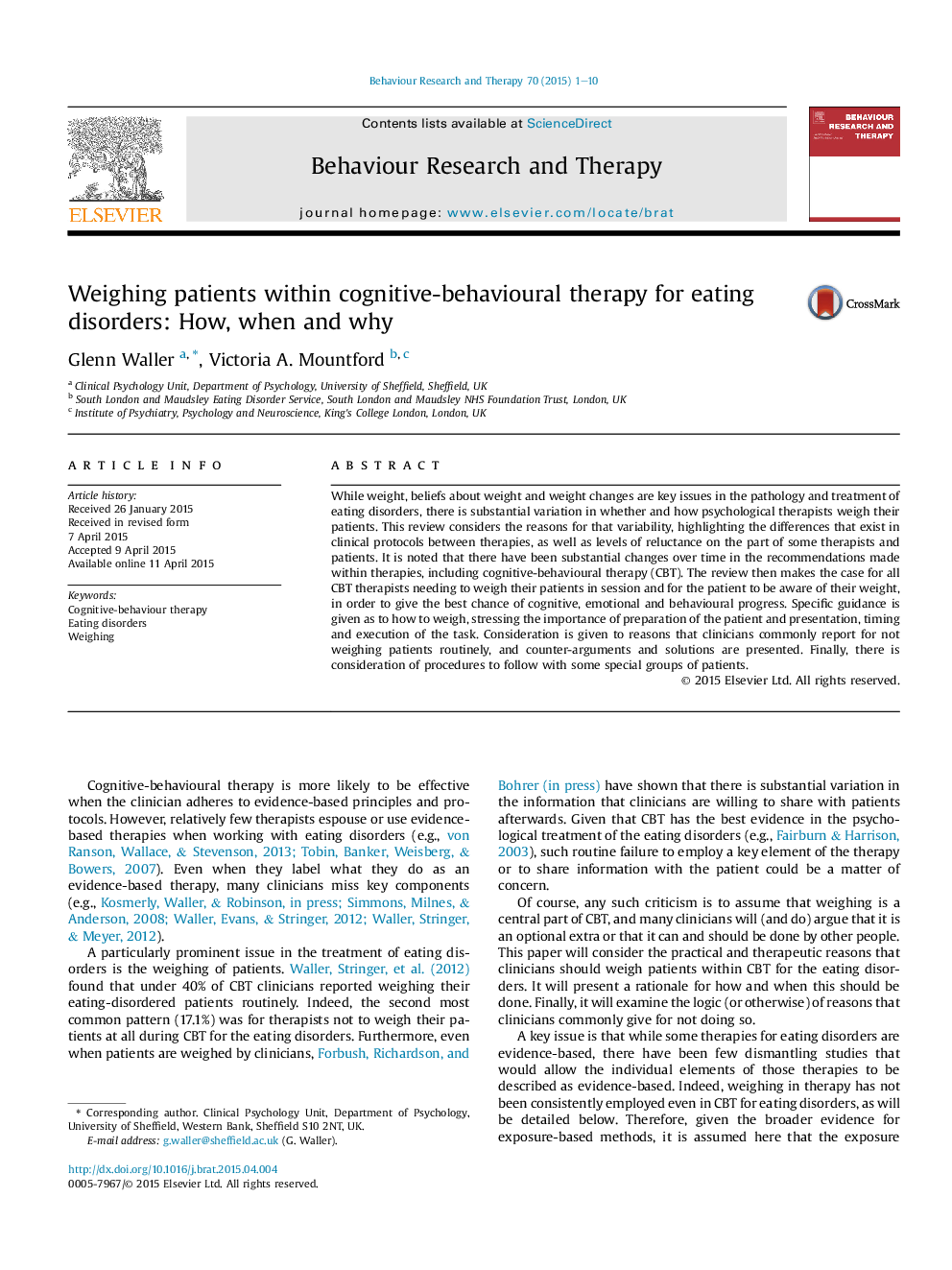| Article ID | Journal | Published Year | Pages | File Type |
|---|---|---|---|---|
| 7262320 | Behaviour Research and Therapy | 2015 | 10 Pages |
Abstract
While weight, beliefs about weight and weight changes are key issues in the pathology and treatment of eating disorders, there is substantial variation in whether and how psychological therapists weigh their patients. This review considers the reasons for that variability, highlighting the differences that exist in clinical protocols between therapies, as well as levels of reluctance on the part of some therapists and patients. It is noted that there have been substantial changes over time in the recommendations made within therapies, including cognitive-behavioural therapy (CBT). The review then makes the case for all CBT therapists needing to weigh their patients in session and for the patient to be aware of their weight, in order to give the best chance of cognitive, emotional and behavioural progress. Specific guidance is given as to how to weigh, stressing the importance of preparation of the patient and presentation, timing and execution of the task. Consideration is given to reasons that clinicians commonly report for not weighing patients routinely, and counter-arguments and solutions are presented. Finally, there is consideration of procedures to follow with some special groups of patients.
Related Topics
Health Sciences
Medicine and Dentistry
Psychiatry and Mental Health
Authors
Glenn Waller, Victoria A. Mountford,
